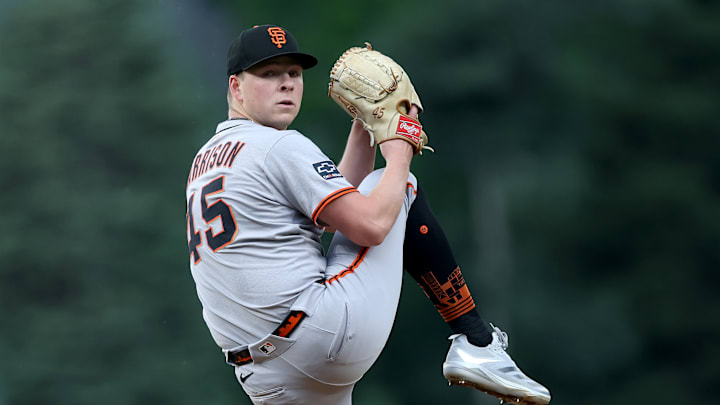The Rafael Devers trade remains a shock even days after it was initially announced, and the light return package the Boston Red Sox received in exchange for the face of their franchise certainly has something to do with that.
Former top prospect Kyle Harrison, reliever-turned-starter Jordan Hicks, outfield prospect James Tibbs III, and rookie-ball pitcher Jose Bello hardly add up to a promising return for one of the best sluggers in the game, especially considering that Devers (28) is still young and has more than eight years remaining on his current contract.
Nevertheless, there is upside present, especially in the major league arms they acquired. What can Red Sox fans expect of Harrison and Hicks in the coming months and years?
Kyle Harrison, Jordan Hicks bring impressive pedigree to Red Sox's rotation and bullpen
The first thing to note about both pitchers is that they have experience as starters and relievers, and that kind of versatility is valuable, even if Boston has a clear plan in place for both Harrison and Hicks. Harrison is the bigger draw here, mostly because of his recent top prospect pedigree, but also because the Red Sox are sending him to Triple-A Worcester to stretch him out as a starter.
That decision has as much to do with the southpaw's performance this year as it does with the Red Sox's suddenly full rotation, which comprises Garrett Crochet, Brayan Bello, Hunter Dobbins, and (for now) Walker Buehler and Lucas Giolito.
Harrison has a 4.48 ERA and 1.297 WHIP with 178 strikeouts over 182 2/3 innings in 39 appearances (35 starts) during parts of three seasons in the majors with the Giants. He started the 2025 season as a reliever, though he moved back to the rotation (both in Triple-A and MLB) as Hicks struggled with poor performance and injuries.
It was just a few years ago that Harrison was considered one of the best prospects in baseball, with huge marks from scouts for his fastball and polish on the mound (he led the minors with a 39.8% whiff rate in 2022). He's still a three-pitch pitcher, with his fastball and slurve accounting for 90% of his offerings this year. The former, coming in at an average of 95.1 mph, remains his best pitch, generating an opponent batting average of .175 (.259 wOBA). Unfortunately, his slurve (.381 opponent batting average, .513 wOBA) and changeup (.286 average, .308 wOBA) remain relatively ineffective offerings.
The development of those pitches will be crucial in his long-term prospects to remain a starter in Boston. The fastball is already good enough to get big league hitters out; he just needs to figure out how to throw his slurve to fellow lefties and his changeup to righties.
As for Hicks, the flamethrowing righty signed a four-year, $44 million deal with the Giants prior to 2024, meaning he still has 2.5 years left on his deal at a reasonable AAV. They tried stretching him out as a starter in San Francisco, but his poor results (4.83 ERA in over 150 innings) have led him back to the bullpen, at least according to the man who acquired him.
“We’re absolutely excited about bringing Jordan Hicks, a dominant late-inning reliever, into our mix,” chief baseball officer Craig Breslow said.
Like Harrison, Hicks still has a top-notch fastball, though his should be even better once he returns from the injured list as a pure reliever. He's averaged around 97 mph as a starter, though in his last season as a reliever with the St. Louis Cardinals, Hicks averaged an MLB-leading 100.3 mph on his four-seam fastball (and over 100 mph on his sinker, as well).
Neither player will replicate the impact Devers had on the team — both on and off the field — though they aren't complete zeros, either. They'll be unfairly judged as the main return of the trade for years to come (at least until Tibbs makes his MLB debut), but the duo should add some much-needed firepower to the Red Sox's pitching staff.
